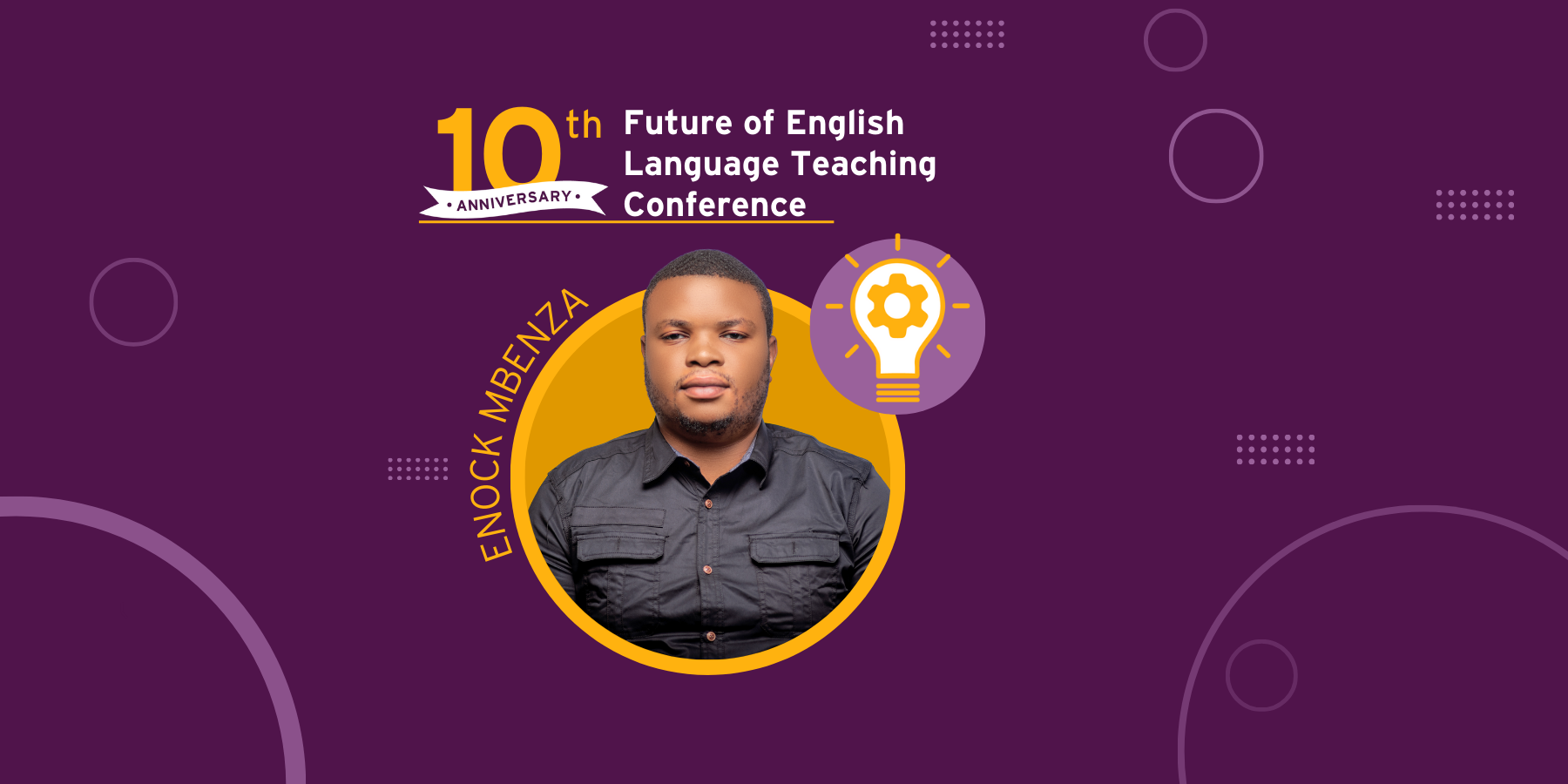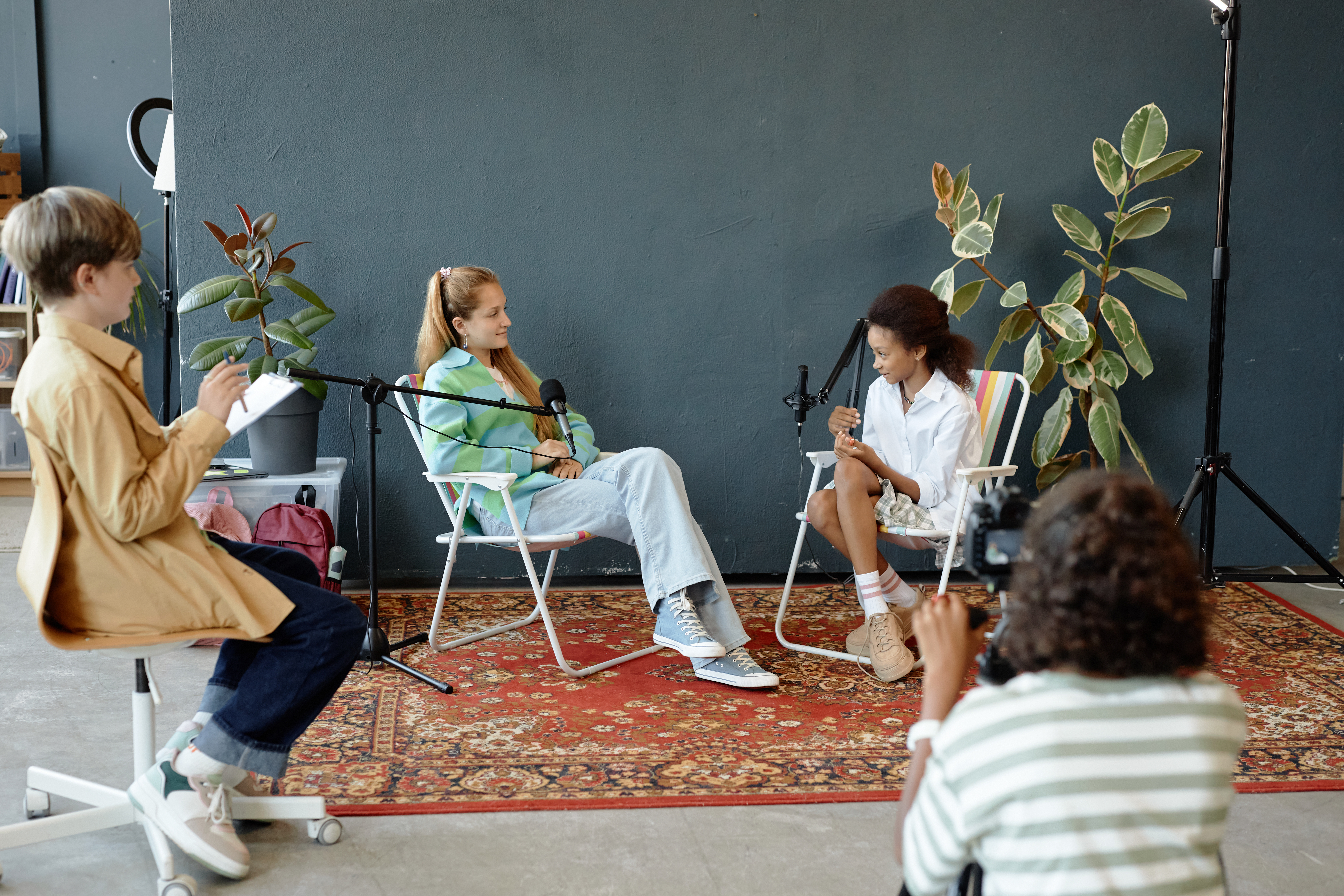Innovative student podcasting activities to enhance both communicative competence and 21st century skills

Innovative student podcasting activities to enhance both communicative competence and 21st century skills
At this year’s Future of English Language Teaching (FoELT) conference, Enock Mbenza explored how student-led podcasting can develop language proficiency, creativity and critical thinking skills, while providing learners with authentic opportunities to use English.
Enock Mbenza teaches at the Institut Supérieur des Techniques Médicales de Kisantu (ISTM/Kisantu) and the Congo American Language Institute (CALI) in the Democratic Republic of the Congo. He holds a bachelor’s degree in English Language Teaching from the Institut Supérieur Pédagogique de Mbanza-Ngungu. His research interests include English for Specific Purposes syllabus and materials design, 21st century skills in classroom activities and language teaching in large classes.
Why podcasting matters
Enock began by outlining how podcasts have become a valuable tool in English language teaching, offering opportunities to practise listening, speaking, grammar, vocabulary and pronunciation. Beyond language skills, he noted that podcasts also enhance motivation and confidence by allowing learners to produce meaningful content for real audiences.
While many teachers use podcasts as listening materials, Enock’s focus was on student-created podcasts. By producing their own shows, learners move from passive consumers of language to active communicators. This process helps them develop 21st century skills such as collaboration, critical thinking, creativity and reflection.
Four podcasting frameworks
Enock presented four practical frameworks teachers can use to guide students through the podcast creation process. Each framework offers a structured yet flexible approach, allowing learners to express ideas while practising authentic communication.
- Debate podcasts, where students prepare arguments on current or controversial topics, helping them organise ideas and practise persuasive language
- Discussion podcasts, where learners share opinions or explore classroom themes in groups, promoting spontaneous interaction and turn-taking
- Solo podcasts, which allow individual learners to express personal viewpoints or summarise research findings, building confidence and fluency
- Meta-analytic podcasts, where learners analyse and reflect on prior learning experiences, linking classroom content to real-world contexts
Each framework can be adapted to different age groups and proficiency levels, making podcasting accessible across diverse teaching contexts.
Steps for implementing podcasting
Enock shared practical steps for setting up student podcast projects. These include:
- Introducing the concept of podcasting and its benefits for communication
- Providing clear templates and guiding questions to help learners plan and structure their episodes
- Encouraging brainstorming, scripting, and rehearsal before recording
- Supporting learners with technical aspects, such as using free recording software or mobile apps
- Including peer feedback and reflection activities after publishing
He emphasised that the teacher’s role is to guide and facilitate rather than direct, allowing learners to take ownership of the process.
Addressing challenges
Enock acknowledged that student podcasting presents some challenges, such as limited access to technology, time constraints and varying levels of learner confidence. He proposed practical solutions, including low-tech alternatives like audio notes, in-class recordings or using smartphones in pairs.
He also stressed the importance of creating a supportive classroom environment where experimentation is encouraged and mistakes are viewed as part of the learning process.
Assessing podcast projects
Assessment, Enock explained, should focus on both the product and the process. Rubrics can help evaluate key elements such as clarity, accuracy, pronunciation, organisation and teamwork, while also recognising creativity and effort.
He recommended that teachers provide feedback not only on language use but also on communication strategies, reflection and collaboration. This approach aligns with communicative and formative assessment principles, ensuring that evaluation supports learning rather than simply measuring outcomes.
Key takeaways
|
Theme |
Key idea |
|
Authentic learning |
Student podcasts create real communication opportunities beyond the classroom. |
|
Four frameworks |
Debate, discussion, solo and meta-analytic formats help structure learning and creativity. |
|
Skill development |
Podcasting promotes critical thinking, autonomy and collaboration alongside language skills. |
|
Implementation |
Clear templates, scaffolding and reflection support successful project delivery. |
|
Assessment |
Rubrics and formative feedback ensure fair and meaningful evaluation. |
Final thought
Enock’s session showed how student podcasting can transform language learning into a creative, collaborative and reflective process. By combining authentic communication with opportunities for self-expression, podcast projects help learners develop not only their English proficiency but also the confidence and skills needed to thrive in the 21st century classroom and beyond.
